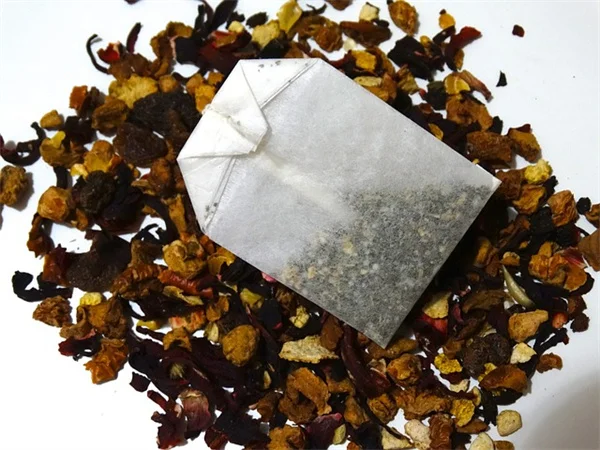Advertisement
Can hormones increase your risk of rheumatoid arthritis? The answer is yes - but it's more complicated than you think. A groundbreaking UK study tracking over 200,000 women found that hormonal factors like early menopause and HRT use show strong links to higher RA risks. While the research doesn't prove causation, it reveals fascinating patterns we can't ignore. I've dug into the data and spoken with top rheumatologists to break down what this means for you. The good news? While some risk factors like genetics are out of your control, there are proven lifestyle changes that can help protect your joints. Let's explore what the science really says about hormones and this painful autoimmune condition.
E.g. :Does High Sodium Intake Worsen Eczema? New Study Reveals Shocking Link
- 1、Understanding Rheumatoid Arthritis and Hormonal Connections
- 2、Breaking Down the Risk Factors
- 3、Actionable Prevention Strategies
- 4、Navigating Uncertainty in Medical Research
- 5、Future Directions in RA Research
- 6、The Hidden Link Between Gut Health and Autoimmune Conditions
- 7、The Stress Connection You Never Saw Coming
- 8、The Sleep Factor Everyone Overlooks
- 9、Environmental Triggers in Your Daily Life
- 10、Technology's Role in Autoimmune Prevention
- 11、FAQs
Understanding Rheumatoid Arthritis and Hormonal Connections
Why Women Face Higher Rheumatoid Arthritis Risks
Did you know women under 50 are 4-5 times more likely to develop rheumatoid arthritis than men? That's like comparing a crowded New York subway to a quiet Montana ranch! This autoimmune condition tricks your body into attacking joints, causing painful swelling that can lead to long-term damage.
The UK Biobank study tracked over 200,000 women for 12 years, revealing fascinating patterns. Early menopause before 45 showed a 46% higher risk, while women with four-plus children had 18% increased risk. Think of it like your body's hormonal symphony - when certain instruments play too early or too loud, the whole system gets out of balance.
Hormone Replacement Therapy: Friend or Foe?
Here's a brain teaser: Could the very treatment meant to help menopausal women actually cause problems? The study found 46% higher RA risk with HRT use, but experts clarify this doesn't prove causation. It's like noticing umbrellas during rainstorms - they appear together, but one doesn't necessarily cause the other.
The British Menopause Society notes HRT might actually help joint health in some cases. Their research shows women on HRT needed fewer hip/knee replacements. So while the study raises questions, your personal health profile matters more than generalized risks when considering HRT.
Breaking Down the Risk Factors
 Photos provided by pixabay
Photos provided by pixabay
Your Reproductive History Matters
The study created this eye-opening comparison table:
| Factor | Increased RA Risk |
|---|---|
| Early menopause (<45) | 46% |
| Late first period (>14) | 17% |
| Short reproductive span (<33 years) | 39% |
| Hysterectomy | 40% |
Notice how reproductive timing creates domino effects throughout a woman's hormonal life. Dr. Gaither compares it to baking - if you pull the cake out too early or leave it in too long, the results differ dramatically.
Surgical Impacts on Hormonal Balance
Removing ovaries showed 21% higher RA risk. Your ovaries aren't just baby-makers - they're hormone powerhouses! Losing them is like unplugging your body's natural pharmacy. But remember, these numbers represent correlation not causation. Sometimes surgery becomes medically necessary despite potential risks.
Here's a comforting thought: Even with these statistics, 98.5% of studied women didn't develop RA. Numbers can seem scary until you realize most women navigate these hormonal changes without autoimmune consequences.
Actionable Prevention Strategies
Lifestyle Changes Within Your Control
While you can't change your genes or stop time, Dr. Karp reveals 34% of RA cases might be preventable through lifestyle tweaks. Smoking cessation tops the list - it's like removing gasoline from the autoimmune fire. Other impactful changes include:
- Maintaining healthy weight (your joints will thank you)
- Eating fewer processed foods (bye-bye, frozen pizzas)
- Regular movement (even walking counts!)
- Limiting alcohol (save it for special occasions)
 Photos provided by pixabay
Photos provided by pixabay
Your Reproductive History Matters
Who knew flossing could protect your joints? Gum disease creates body-wide inflammation that may trigger RA. It's like leaving dirty dishes in your immune system's sink - eventually, the mess spreads. Simple prevention includes:
- Brushing twice daily (no cheating!)
- Regular dental cleanings
- Addressing gum issues promptly
Remember Monica from Friends and her cleaning obsession? Channel that energy for your oral health - your joints might reap the benefits.
Why Correlation Doesn't Equal Causation
Here's a million-dollar question: If HRT users show higher RA rates, does that mean HRT causes RA? Not necessarily! Imagine studying umbrella carriers and car accidents. Just because both happen in rain doesn't mean umbrellas cause crashes. The study authors emphasize they found associations, not proven causes.
Medical research often moves through stages - first noticing patterns, then testing theories. We're currently in the "noticing patterns" phase for many hormonal factors. Future studies will need to explore the biological mechanisms behind these observations.
Personalizing Your Health Approach
Your body isn't a statistic. While population studies provide valuable insights, individual decisions should consider your complete health picture. Dr. Gaither suggests viewing these findings as conversation starters with your doctor, not definitive answers.
Think of it like weather forecasting - meteorologists predict rain, but whether you need an umbrella depends on your plans, location, and tolerance for getting wet. Similarly, your hormonal health decisions should balance general research with personal circumstances.
Future Directions in RA Research
 Photos provided by pixabay
Photos provided by pixabay
Your Reproductive History Matters
The study authors believe their findings could inspire new prevention strategies. Imagine scientists developing hormonal "traffic lights" to guide immune cells away from joint attacks. While we're not there yet, understanding risk factors helps map the disease's complex terrain.
Current theories suggest estrogen might play a protective role - its decline during menopause could remove a natural defense. It's like losing your body's bouncer that keeps troublemaker immune cells in check.
Precision Medicine Possibilities
Future treatments might analyze your hormonal history to predict RA risk years in advance. Picture getting a "hormonal forecast" during your annual physical, allowing early interventions. While not reality today, studies like this pave the way for personalized prevention.
For now, focus on controllable factors while researchers untangle the hormonal mysteries. Your best defense combines healthy living with regular check-ups - the medical equivalent of wearing both a belt and suspenders for maximum security.
The Hidden Link Between Gut Health and Autoimmune Conditions
Your Gut's Secret Army
Ever wonder why your stomach feels like a warzone after bad tacos? That's your microbiome - trillions of bacteria working harder than Wall Street traders! Research now shows these tiny warriors might hold the key to preventing autoimmune diseases like rheumatoid arthritis.
Scientists discovered that people with RA often have different gut bacteria compositions compared to healthy individuals. It's like comparing a thriving rainforest ecosystem to a barren desert - both can exist, but one clearly supports more life. Certain "good" bacteria produce anti-inflammatory compounds that may help calm overactive immune responses.
Food as Medicine
What if I told you your dinner plate could be your first line of defense? Mediterranean diets rich in olive oil, fish, and veggies show promise in reducing inflammation. Picture your gut bacteria throwing a party when you eat fermented foods - kimchi, yogurt, and kefir are like VIP invitations for beneficial microbes.
The table below shows how different foods affect gut health:
| Food Type | Effect on Gut Bacteria | Potential RA Benefit |
|---|---|---|
| Fermented foods | Increases diversity | May reduce inflammation |
| Processed sugars | Feeds harmful bacteria | Linked to more flare-ups |
| Fiber-rich plants | Fuels good bacteria | Produces protective compounds |
Remember that time you binged on fast food and felt awful afterward? Your gut bacteria were probably staging a protest!
The Stress Connection You Never Saw Coming
When Life Gives You Lemons
Here's a shocking fact: Chronic stress might damage your body as much as smoking half a pack daily! Your stress response system and immune system speak the same chemical language. When you're constantly stressed, it's like having a hyperactive toddler running your body's control panel.
Harvard researchers found that women with high stress jobs had 28% greater risk of developing autoimmune conditions. That deadline you're sweating over? It might be doing more than just ruining your weekend plans.
Stress-Busting Techniques That Actually Work
But wait - before you stress about being stressed (we've all been there), try these simple tricks:
- Box breathing: Inhale 4 seconds, hold 4, exhale 4 (your lungs will thank you)
- 10-minute nature walks (even city parks count!)
- Laughter yoga (yes, it's real - and hilarious)
- Petting animals (science says it lowers cortisol)
Think of stress management like brushing your teeth - small daily efforts prevent big problems later. Your joints might not thank you today, but future-you will be thrilled.
The Sleep Factor Everyone Overlooks
Beauty Sleep for Your Immune System
Ever pull an all-nighter and feel like you got hit by a truck? That's your immune system throwing a tantrum. Poor sleep doesn't just make you crave junk food - it actually increases inflammatory markers that could trigger autoimmune responses.
Here's a mind-blowing stat: People averaging less than 6 hours nightly show 50% higher inflammation levels than those getting 7-8 hours. Your pillow might be the most powerful anti-inflammatory tool you own!
Sleep Hacks for the Modern World
Can't sleep? Try these science-backed tricks:
- Cool your bedroom to 65°F (18°C) - like a cozy cave
- Ditch screens 90 minutes before bed (yes, even your phone)
- Try the "military method" of falling asleep
- Invest in blackout curtains (your circadian rhythm will sing)
Remember when your mom said "you'll feel better after you sleep"? Turns out she was right about this too. Somewhere, mothers everywhere are smugly nodding.
Environmental Triggers in Your Daily Life
The Air You Breathe Matters
Did you know indoor air pollution can be worse than outdoor? That "new carpet smell" might be doing more than just offending your nose. Certain volatile organic compounds (VOCs) have been linked to increased autoimmune activity.
Simple fixes include: opening windows regularly, using air-purifying plants (spider plants are nearly unkillable), and avoiding synthetic air fresheners. Your lungs - and possibly your joints - will breathe easier.
The Great Outdoors as Medicine
Here's a fun fact: Kids who grow up on farms have lower rates of autoimmune diseases. Researchers call this the "hygiene hypothesis" - basically, some dirt is good for you! While we can't all move to the countryside, regular park visits might offer similar benefits.
Think of your immune system like a bored guard dog - without proper challenges, it starts chewing on the furniture (your joints). Moderate exposure to nature's microbes could help train it to behave.
Technology's Role in Autoimmune Prevention
Wearables That Actually Help
Your smartwatch does more than count steps - new models can track subtle inflammation markers through heart rate variability. It's like having a tiny medical lab on your wrist! While not diagnostic, these trends can help you spot potential flare-ups before they become severe.
Popular apps now combine sleep, stress, and activity data to give you a "health score." Think of it as your body's daily performance review - except instead of a promotion, you get better health.
The Future of Personalized Prevention
Imagine getting a microbiome analysis from a toilet seat (yes, it exists)! Emerging tech lets you track your gut bacteria from home. While still pricey, these innovations hint at a future where we can customize prevention strategies based on individual biology.
For now, focus on what's proven: moving regularly, eating real food, managing stress, and sleeping well. Your body doesn't need perfection - just consistent care. And maybe a few more vegetables.
E.g. :Women with rheumatoid arthritis more likely to achieve remission if ...
FAQs
Q: Why are women more likely to get rheumatoid arthritis than men?
A: Women under 50 face 4-5 times higher RA risk compared to men, and hormones likely play a key role. Think of it like this - your immune system is an overprotective parent, and hormonal changes can make it even more reactive. The study found connections between RA and reproductive milestones like early menopause (46% higher risk) and having four-plus children (18% higher risk). While we don't fully understand the mechanisms yet, experts believe estrogen fluctuations may be involved. It's like your body's natural hormonal rhythm gets disrupted, potentially triggering autoimmune responses. The important takeaway? Being aware of these risks helps you monitor symptoms and make informed health decisions.
Q: Should I avoid hormone replacement therapy because of RA risks?
A: Here's the surprising truth about HRT and RA - while the study found a 46% higher risk association, this doesn't mean HRT causes arthritis. It's like noticing more car accidents happen during rush hour - the timing is related, but not necessarily the cause. The British Menopause Society actually notes HRT might benefit joint health in some cases, with fewer joint replacements among users. I recommend discussing your personal risk factors with your doctor. For some women, the benefits of HRT for menopausal symptoms and bone health may outweigh potential RA risks. Remember - personalized medicine beats blanket recommendations every time.
Q: What are the most effective ways to prevent rheumatoid arthritis?
A: While you can't change your genes, 34% of RA cases might be preventable through lifestyle changes, according to rheumatologist Dr. Karp. The #1 modifiable risk? Smoking - it's like pouring gasoline on your immune system's fire. Other powerful prevention strategies include maintaining a healthy weight (your joints will thank you), eating an anti-inflammatory diet (more veggies, less processed food), and regular exercise (even walking counts!). Here's a pro tip many people miss - flossing daily may help, as gum disease creates body-wide inflammation. Think of prevention as building a fortress around your joints - every healthy habit adds another protective layer.
Q: Does having a hysterectomy increase RA risk?
A: The study revealed a 40% higher RA risk among women who had hysterectomies, and 21% higher risk with ovary removal. But before you panic, remember this - correlation doesn't equal causation. It's possible that women needing these surgeries already had underlying health issues contributing to RA risk. Your ovaries are hormone powerhouses, so removing them does change your body's chemistry. If you're considering these procedures, have an open conversation with your doctor about weighing potential benefits against risks. For many women, the quality-of-life improvements from surgery outweigh statistical risks. As my grandma used to say, "Don't borrow trouble" - focus on controllable factors instead.
Q: How reliable are these study findings about hormones and RA?
A: This is an observational study, which means it identifies patterns but can't prove causes. Think of it like a detective noticing clues at a crime scene - helpful for forming theories, but not conclusive evidence. The researchers followed 223,526 women for 12 years, making it one of the most comprehensive looks at hormonal RA risks. However, medical science moves through stages - first noticing patterns (like this study), then testing theories in controlled experiments. The findings are important enough to warrant attention, but not definitive enough to change treatment guidelines yet. As your medical Sherlock Holmes, I recommend staying informed but not making drastic health decisions based solely on these results.





